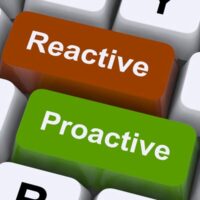Duty To Inspect Vs. Duty To Warn

A property owner’s obligation to ensure a safe premise encompasses various duties, including the duty to inspect for dangers and the duty to warn of known hazards. While these duties are related, they serve distinct purposes in the realm of premises liability law.
Comprehending the differences between these two duties is essential when a property owner or injured visitor is navigating an injury claim. Seasoned Miami personal injury lawyers are available to help injured individuals recover compensation for accident-related expenses.
Key Differences Between the Duties
The duty to inspect for dangers requires property owners to actively monitor their premises for potential hazards. This proactive responsibility involves regular inspections and maintenance to identify and mitigate risks before they cause harm.
Property owners must conduct routine checks of their premises to identify any unsafe conditions and upon discovering a hazard, property owners are expected to address it promptly. Failing to repair or remove dangers can lead to accidents and potential liability. Preventative measures should be explored on an ongoing basis.
Similar but different, duty to warn of known hazards means property owners must inform visitors about dangers that are not immediately obvious. This duty is particularly crucial when immediate repair or removal of the hazard is not possible. For example, when repairs are pending, property owners should take temporary measures to protect visitors, such as placing caution signs around a wet floor or using cones to block off a hazardous area.
While both duties aim to protect visitors from harm, they differ in their approach and application.
- Proactivity vs. reactivity. The duty to inspect is proactive, requiring ongoing efforts to identify and fix hazards, and the duty to warn is reactive, focusing on informing visitors about existing dangers that cannot be immediately addressed.
- Scope of responsibility. Inspection responsibilities encompass a broader range of actions, including regular maintenance and repairs. The duty to warn is more specific, involving the communication of known hazards.
- Legal implications. Failing to fulfill the duty to inspect can result in liability for accidents caused by unnoticed hazards. Failing to warn can lead to liability for injuries caused by hazards that visitors were not made aware of.
If you have been injured on someone else’s property, it is important to consult a legal professional who has experience in premises liability to determine if there is enough evidence to build a strong claim.
Disputed Liability and Legal Expertise
If the property owner or their insurance company disputes liability or denies your claim, a lawyer can help gather evidence, negotiate with insurers, and represent your interests in court if necessary.
Recognize that premises liability cases can be complex, particularly when they involve multiple parties, more than one insurance policy, and detailed legal requirements. An experienced Miami personal injury lawyer can navigate these complexities and seek damages on your behalf.
Has an injury you sustained on another’s property complicated your life? Florida property owners have distinct responsibilities. The legal team at Spencer Morgan Law has the training and skills to protect your rights and secure the compensation you need. Call 305-423-3800 for a confidential assessment.
